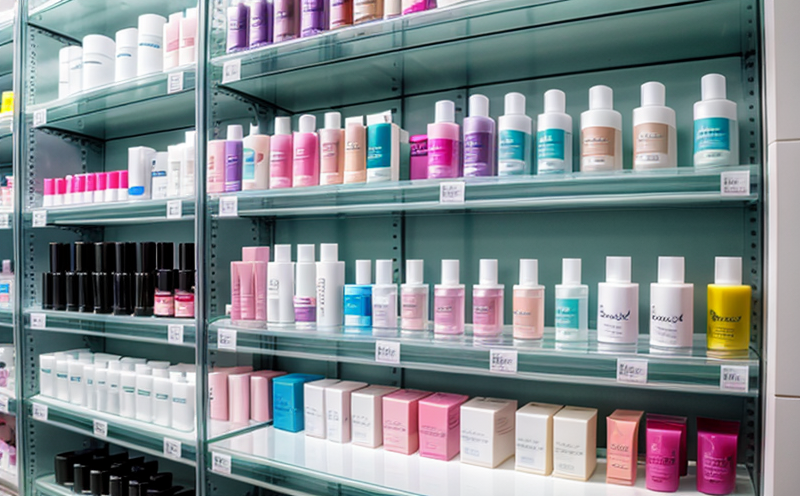Stability Testing of Cosmetic Pencil Formulations
The stability testing of cosmetic pencil formulations is a critical component in ensuring product quality and compliance with regulatory standards. This service focuses on evaluating the long-term performance and integrity of cosmetic pencils under various environmental conditions, such as temperature, humidity, and light exposure. The goal is to determine whether the formulation remains stable over time, maintaining its physical properties (e.g., hardness, texture) and chemical stability.
Stability testing for cosmetic pencil formulations involves a series of experiments designed to mimic real-world storage conditions. These tests help manufacturers identify potential issues early in the development process and ensure that their products will meet quality standards throughout their shelf life. The testing is particularly important because cosmetic pencils are subject to mechanical stress during use, which can affect their stability.
During this testing process, the formulation undergoes rigorous examination under controlled environmental conditions. The tests typically include:
- High temperature/high humidity (HT/HH) storage
- Accelerated aging at elevated temperatures and light exposure
- Light stability testing to assess photostability
- Impact resistance tests to evaluate mechanical integrity
The results of these tests provide valuable insights into the formulation's behavior over time, allowing for necessary adjustments before commercial release.
Apart from ensuring product quality and compliance with regulations, stability testing also helps in optimizing production processes. By identifying potential issues early on, manufacturers can improve their manufacturing techniques and packaging to enhance shelf life and overall product performance.
Scope and Methodology
The scope of our stability testing service for cosmetic pencil formulations encompasses a comprehensive evaluation of the formulation's physical and chemical properties over time. This includes assessing the pencil's hardness, texture, color retention, and resistance to mechanical stress. The methodology involves several key steps:
- Sample Preparation: Samples are prepared according to standard procedures to ensure uniformity.
- Environmental Exposure: Samples undergo exposure to different environmental conditions such as temperature, humidity, and light.
- Data Collection: Physical properties of the samples are measured at regular intervals.
- Analysis: Data is analyzed to determine any changes in the formulation's characteristics over time. This includes using advanced analytical techniques to assess chemical stability.
The testing process adheres to international standards such as ISO and ASTM, ensuring that our results are reliable and consistent with global regulatory expectations.
The methodology also considers the specific challenges associated with cosmetic pencils, such as their mechanical stress during use. This ensures that the tests accurately reflect real-world conditions and provide meaningful insights into product performance.
Industry Applications
- Manufacturing: Ensures consistent quality across all production batches.
- Formulation Development: Identifies potential issues early in the development process, allowing for necessary adjustments before commercial release.
- Product Optimization: Helps optimize manufacturing techniques and packaging to enhance shelf life and overall product performance.
- Quality Control: Provides a robust quality assurance framework by identifying potential stability issues early in the development process.
The results of stability testing are crucial for manufacturers looking to ensure their products meet strict regulatory standards. This service is particularly valuable for companies aiming to improve product longevity and consumer satisfaction.
International Acceptance and Recognition
- ISO: ISO 17845 specifies the conditions for accelerated testing of cosmetic products, which is applicable to stability testing.
- ASTM: ASTM D7042 provides guidelines for the accelerated aging of cosmetics, including pencils, under controlled conditions.
- EN: EN 318 specifies the requirements and test methods for cosmetic products, which includes stability testing.
The international recognition of our stability testing service is reflected in its alignment with these global standards. Our laboratory is equipped to conduct tests that meet the rigorous requirements set by these organizations, ensuring that manufacturers are compliant with both national and international regulations.
Our service is recognized for providing accurate and reliable results, which are essential for gaining market acceptance and ensuring product safety and efficacy. Compliance with international standards not only enhances brand reputation but also facilitates easier entry into global markets.





